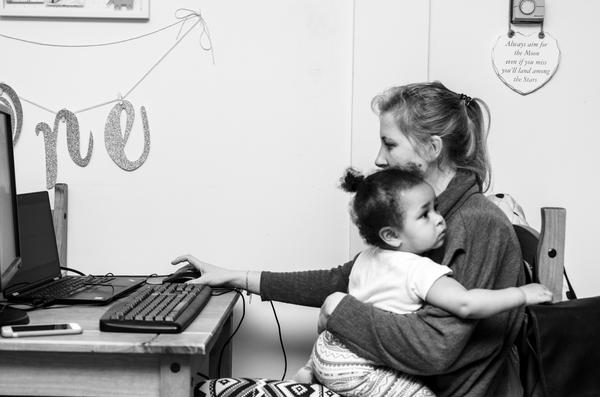Rachel O’Brien, who edits RSA Comment, shares progress made in the last year and outlines aspirations for the future.
Just over a year ago, as Covid-19 emerged, the RSA moved rapidly to ensure that it continued to respond to changing context. This included the launch of its Bridges to the Future series of podcasts, online events and essays in March. It also involved responding to the significant increase in number of articles being sent in by Fellows for this space – RSA Comment – that between mid-March and the end of 2020 published 100 articles.

This represents a significant increase in activity driven both by more Fellows being stuck at home but also, and more significantly, their desire to start thinking about what lessons we need to learn from Covid-19 across a wide range of issues. And, so far, this year there is no sign that this desire has waned; by the time we reach mid-March 2021, a year from the UK’s first lockdown and global public awareness of the pandemic, we anticipate that the number of pieces published will be heading towards 130.
RSA Comment provides an online space where Fellows and others can write about a range of themes and to a timetable that is outside the quarterly schedule of the RSA Journal. This means it is able to carry pieces that respond rapidly to emerging issues; from Prasanna Kannan and David Dobereiner on what Covid-19 may mean for our thinking about how we produce and consume food and what we eat.
For some writers, Covid-19 raised fundamental questions about inequality. Early on, in their pieces, Poppy Jarman and Granville Williams highlighted the critical issue of health inequality in the UK. Meanwhile, Bhavani Esapathi wrote about the need to think about those with critical health needs and the impact of long Covid and Sam Powers took a global view reminding us of the way in which nations without effective healthcare infrastructure would suffer.
As commissioning editor of RSA Comment, I wanted to take this opportunity to thank all those people who have sent pieces in, whether you had your piece published or not. About 10% of pieces sent in do not materialise, either because they are not appropriate for the RSA space (for example, we avoid pieces which are in effect marketing), or because authors decide they are unable to complete the process.
Looking forward, our aim is to continue to carry as many pieces as possible although all need to be published within the Society’s wider schedule of outputs, whether this arises from its research, RSA Journal or specific ‘campaigns’ such as the Bridges series.
In line with RSA’s strategic review, and the shift towards fewer longer-term research programmes – around work, sustainability, education, places and public services – we are encouraging pieces that speak to these. This is already happening. Linked to the Future of Work, for example, Dr Neil Thompson and John Evans explore some of the implications of working remotely, whereas Afifa Waheed and Charles Boundy raised some of the local and global issues intrinsic to the RSA’s, Regenerative Futures programme. In his forthcoming piece, Richard James outlines his work on engagement in relation to community safety and Fred London, adds to the RSA conversation about public services and the role of citizens and place in bringing about positive change.
In addition, more Fellows are using RSA Comment to float new ideas – for example, Susannah Handyman wrote about the potential of volunteer tutors, while Tony Breslin and Helen Higson share their lessons from lockdown in relation to education.
In 2021, we will work on four key priorities in relation to RSA Comment.
First, to use pieces like this to test ideas, get feedback and, hopefully, develop them further through engaging with a wider group of Fellows, and others, who want to be involved and have something to add.
Second, while we want to continue to be responsive, we will be working more proactively to generate pieces from a greater diversity of authors, including more writers from outside of the UK and from a range of disciplines.
Third, we will be working with the new Head of Fellowship Areas and Engagement Team, creating a clear pathway to staircase ideas for Fellow-led projects, linking with programmes and others with common interests, highlighting relevant networks and – in some cases – the potential for applying for Catalyst funds. Our aim is for the space to be a useful starting point for articulating new ideas that may develop into a project, without losing space for analysis and commentary.
Finally, we seek to strike a careful balance between taking an open approach and continuing to improve overall quality and synergy with RSA priorities. Having said this, there is no perfect RSA Comment piece and there is always room for pieces that are more loosely linked to the RSA’s core work.
The best pieces share some key qualities. They come from the heart, reflecting authors’ expertise, experience, opinions and voice. While we welcome polemic, this needs to be both grounded in evidence, respectful and remain non-partisan. They have a central argument that deals briefly with context and the problem, while focusing on what could be done and ways forward. We avoid pieces that read like marketing or self-promotion, in favour of those that explore old issues in new ways, expose and explore new challenges, focusing on potential solutions.
You can read the guidelines and have a look at recent pieces to see the diversity of issues covered. All pieces are edited when sent in. This is partly about aligning them with the RSA’s housestyle but is also about helping you to create impactful articles. Once signed off, pieces are included on the RSA website and then shared with the RSA’s networks through social media. If you have never written for RSA Comment but are thinking of doing so, please do get in touch.
Rachel O’Brien is a freelance consultant. She has led the RSA’s work on prisons and is commissioning editor of RSA Comment and RSA Journal. If you have ideas for pieces for either, please contact her on comment@rsa.org.uk
Related articles
-
Family friendly work
Comment
Catherine Hine FRSA
Catherine Hine FRSA writes on the urgent need for a cultural shift toward supporting improved understanding and support to families in the workplace.
-
How can you report pain if you struggle to recognise it?
Comment
Carly Jones MBE FRSA
During the first Covid-19 lockdown, Carly Jones became concerned about the autistic people she works with and how they and others who struggle to communicate pain would be able to gain timely care. So she designed and launched a self-funded app to help.
-
Flexible work in the era of Covid-19
Comment
Lynn Houmdi FRSA
Lynn Houmdi FRSA on how her social enterprise Making Work Work is helping change workplace culture and support women.




Be the first to write a comment
Comments
Please login to post a comment or reply
Don't have an account? Click here to register.